In Nova Scotia, the maximum legal blood alcohol concentration (BAC) limit is set at 0.08% or 80mg. Exceeding this BAC limit while driving constitutes a breach of the province’s Impaired Driving Regulations.
This post will guide you about alcohol limit and impaired driving regulations in Nova Scotia.
The purpose of this post is to simply present information about drinking limits and impaired driving in Nova Scotia. This article does not encourage drinking a specific amount of alcohol while driving.
We do not advocate drunk driving and highly suggest using other modes of transportation if you are drunk. Instead of driving after drinking, it is best to hail a cab, book an Uber, or a designated driver service.
It’s also good to regularly look at the province’s official website for updates on drunk driving regulations.
What is the legal alcohol limit for driving in Nova Scotia?
In Nova Scotia, the legal alcohol limit for driving varies based on the driver’s age and license type. The province enforces strict regulations to ensure the safety of all road users. Below are the specific legal BAC limits for different categories of drivers:
- Regular Drivers: The legal BAC limit is 0.08%. Drivers found operating a vehicle with a BAC exceeding this limit are subject to legal penalties under Nova Scotia’s impaired driving laws.
- Minors (Under 21): It is illegal for minors to drive with any detectable amount of alcohol in their system. This zero-tolerance policy applies to all drivers under the age of 21, regardless of their license type.
Drink and Drive Penalties and Punishments in Nova Scotia
Driving under the influence of alcohol in Nova Scotia carries serious penalties, as the law strictly enforces measures to ensure road safety. It’s important to understand that being below the .08% blood alcohol concentration (BAC) legal limit does not guarantee immunity from impairment charges. Impairment can occur with less alcohol in your system, and if symptoms of impairment are evident, you can still face charges and conviction.
Key Points on Alcohol and the Law:
- Legal BAC Limit: While .08% is the legal limit, drivers can be considered impaired with a BAC lower than this if they exhibit signs of impairment.
- Average BAC of Convicted Drivers: The average BAC among convicted drivers in Nova Scotia is .16%, double the legal limit.
- Failure or Refusal to Provide a Sample: Not providing a breath or blood sample to a peace officer when requested, without a reasonable excuse, is a criminal offense.
Criminal Code of Canada:
Under the Criminal Code of Canada, operating a vehicle while impaired by alcohol or drugs—even with a BAC under .08%—is a criminal offense. Penalties can range from fines to imprisonment, driving prohibitions, and could lead to increased insurance rates, loss of insurance, and employment consequences.
Penalties for Driving While Impaired in Nova Scotia:
- First Offence:
- Fine: $600 to $2000
- Driving Privilege Revocation: One year from conviction
- Mandatory Addiction/Drug Dependency Assessment: $455 (driver’s cost)
- Licence Reinstatement Fee: $124.60
- Possible Retaking of Driver’s Tests
- Second Offence (Within 10 Years):
- Fine: $600 to $2000
- Possible Prison Term: Minimum 14 days
- Driving Privilege Revocation: Three years from conviction
- Mandatory Addiction/Drug Dependency Assessment: $455
- Licence Reinstatement Fee: $124.60
- Must Retake Driver’s Tests
- Third Offence (Within 10 Years):
- Fine: $600 to $2000
- Prison Term: Minimum 90 days
- Driving Privilege Revocation: Indefinite (minimum ten years)
- Mandatory Addiction/Drug Dependency Assessment: $455
- Licence Reinstatement Fee: $124.60
- Must Retake Driver’s Tests
- Fourth Offence (Within 10 Years):
- Permanent Revocation of Driving Privileges
- Additional Penalties under the Criminal Code of Canada
It is crucial for drivers in Nova Scotia to stay updated on the laws and penalties regarding impaired driving. Changes can occur, and staying informed is a responsibility. For the most current information, regularly check the official government website of Nova Scotia.
Remember, the penalties are severe and are designed to deter impaired driving, ensuring the safety of all road users.
How can I calculate if my alcohol blood limit is legal in Nova Scotia
In Nova Scotia, the legal blood alcohol concentration (BAC) limit for driving is 0.08%. It’s crucial for drivers to understand how their BAC level is assessed and the methods available to ensure they stay within legal limits.
Personal BAC Calculation Methods
As an experienced phlebotomist with a decade of expertise, I recommend the following two methods to help you estimate your BAC level, although it’s important to remember that these methods cannot guarantee absolute accuracy:
- High-Quality Alcohol Breathalyzer:
- One of the most reliable tools is the BACtrack S80, a professional-grade alcohol breathalyzer. It’s recognized for its accuracy and is approved by the Department of Transportation (DOT) & National Highway Traffic Safety Administration (NHTSA), and cleared by the FDA. Carrying a device like the BACtrack S80 in your vehicle can be a practical way to assess your BAC, helping you make informed decisions about driving. Its use is highly recommended for those in Nova Scotia to avoid unintentional impaired driving.
- Online BAC Calculator:
- Together with fellow phlebotomists and web developers, I’ve developed an online BAC calculator. This tool is designed to give you an estimated BAC level based on inputs such as the amount of alcohol consumed, the time period over which it was consumed, your weight, and your sex. While this method provides an estimate, it’s a useful resource to understand how various factors affect your BAC.
It’s important to note that both the high-quality alcohol breathalyzer and the online BAC calculator offer estimates of your BAC level. Factors like metabolism, food intake, and individual health conditions can influence the accuracy of these readings. Therefore, if you’re close to or over the 0.08% limit according to these tools, it’s safest to avoid driving.
Using these tools can help you make responsible decisions and potentially prevent the risks associated with drunk driving. Always err on the side of caution and consider alternative transportation options if there’s any doubt about your sobriety.
Ways to Avoid Driving with a High BAC in Nova Scotia
Driving with a high Blood Alcohol Concentration (BAC) not only poses a serious risk to your safety and that of others but also carries severe legal consequences in Nova Scotia. Fortunately, there are reliable alternatives to driving under the influence:
1. Use Taxi or Ride-Sharing Apps
In today’s connected world, accessing a ride is easier than ever thanks to taxi and ride-sharing apps. Services like Uber offer a convenient, safe way to get home without risking driving under the influence. For those who prefer local taxi services, Halifax’s “On Time Flight Taxi Services” and Sydney’s “JKB’s Shuttle Service” are excellent options. These services provide a hassle-free alternative to get you home safely, without having to navigate the roads yourself.
2. Order a Designated Driver Service
If you find yourself in a situation where you’ve driven to a location but then consumed alcohol, leaving your car behind might not be your preferred option. Designated driver services offer a solution. In Halifax, “Pass The Keys Driving Services” and in Sydney, simply “Pass The Keys,” are services where a professional driver drives you home in your own vehicle. This way, you can avoid leaving your car unattended and ensure both you and your vehicle arrive home safely. To find a designated driver service in your area, a quick search for “designated driver service” followed by your city name on Google will provide you with options.
The key to avoiding driving with a high BAC is planning. Before heading out, decide on your transportation method should you choose to drink. Downloading ride-sharing apps in advance, saving local taxi numbers on your phone, or pre-booking a designated driver service can make the decision easier when the time comes. Remember, making the responsible choice not only keeps you out of legal trouble but can also save lives.
Staying Within Nova Scotia Drink and Drive Limits
Annually, drunk driving contributes to approximately 22 fatalities in car accidents. Opting for alternative transportation methods after consuming alcohol is the safest choice, eliminating the need to drive while impaired. Even a small amount of alcohol can pose a risk; thus, using a designated driver, hailing a cab, or booking a ride-sharing service like Uber is advisable over driving. If driving is unavoidable, ensure your BAC is legally compliant, referencing the latest guidelines on the province’s official website. Remember, a reliable breathalyzer is crucial for accurately assessing your BAC.

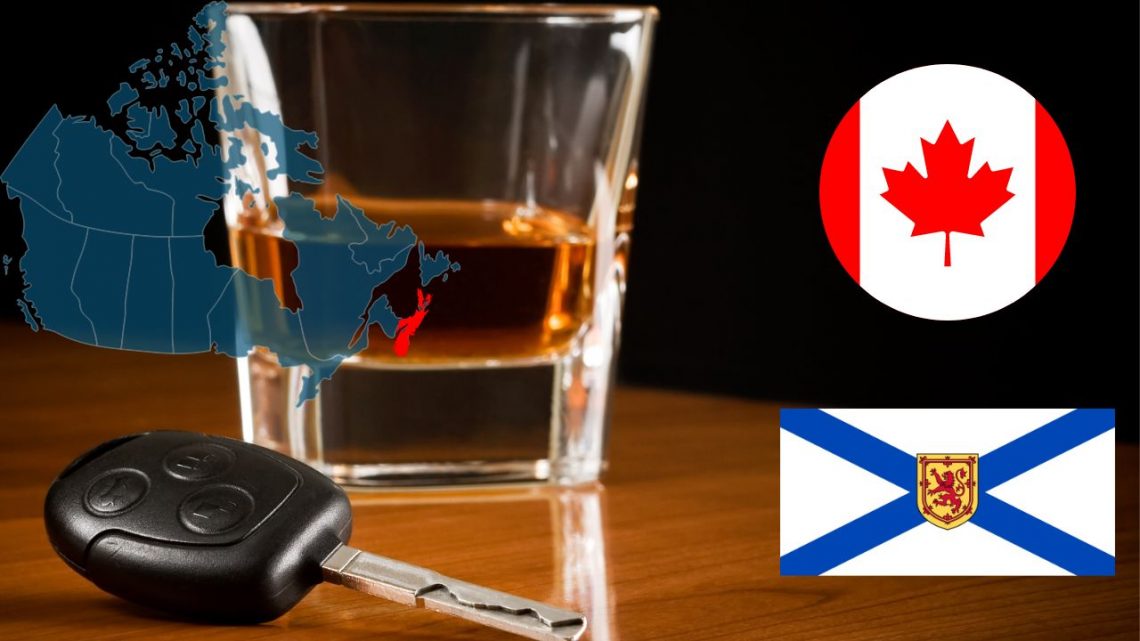
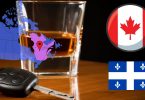
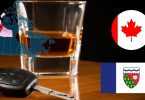
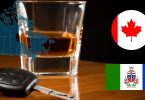
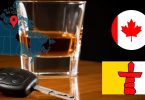

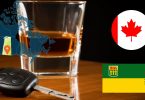
Leave a Comment
You must be logged in to post a comment.